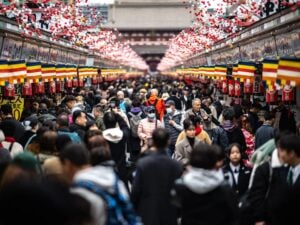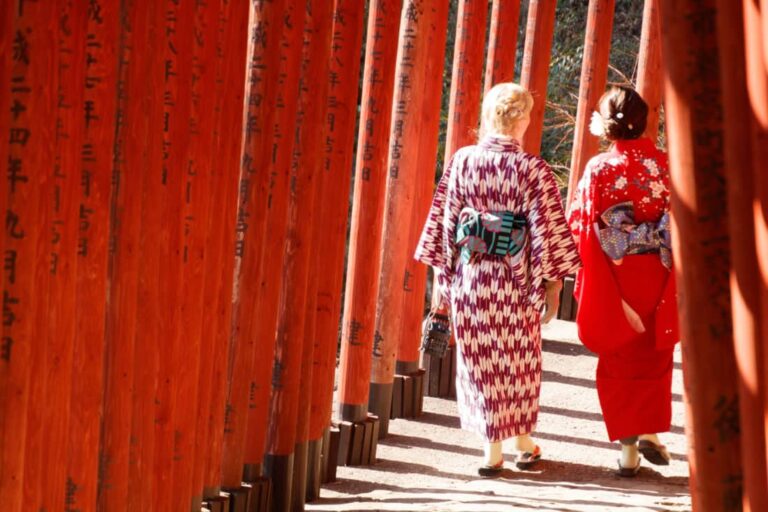
“Are you teaching English?”
This is the question I often hear whenever I meet someone new. It’s one of the frequent questions Japanese people ask when they are curious about why I am in Japan. I remember one day when I went to a restaurant with many of my classmates (I was the only foreigner in my year). While we were chatting, I made a comment to my friend in Japanese, and immediately a chef who was near our table looked at me in surprise.
“Do you speak Japanese? Where are you from? Why are you here?”
The sudden barrage of questions interrupted my conversation with my classmates and made me feel foreign and insecure. These experiences are common for foreigners in Japan. Whenever I mention that I’m from America, I often hear questions like, “Oh, so do you like hamburgers?” Or when I simply want to have a peaceful meal with my friends, an English menu is shoved in my face, even though I never asked for one. Some days, these trivial things are easy to ignore, but on other days, they frustrate me immensely.
However, these issues become more noticeable when they start affecting important aspects of life, such as dealing with banks and paying rent. For instance, when I arrived, I discovered a new policy that required six months of physical presence in Japan to obtain residency status. This policy applied to my student visa, and I immediately ran into problems because my bank account became an international account due to my lack of residency. This meant that every time I tried to pay rent or receive income from my part-time job, I had to pay international remittance fees. The real struggle came when I realized that my university did not accept tuition payments through international remittance. Suddenly, I couldn’t pay my tuition (as I don’t have government scholarships).
Many of these policies make life harder for foreigners compared to their Japanese peers. While my peers could focus on their studies, I spent months trying to figure out how to pay my tuition and rent, despite having the money available. It becomes much more challenging to keep up in class when you are not only trying to overcome the language barrier (since my program isn’t taught in English) but also dealing with anxiety about potentially losing your apartment next month.
One thing I wish I had known when I moved to Japan was just how much the lack of diversity would profoundly affect my everyday life and experiences. While I have been lucky to be able to adapt to Japanese culture, many friends I’ve made struggled and eventually returned home without any desire to ever return to Japan. With this in mind, I would like to discuss the diversity in Japan (or lack thereof) and the views on immigration.
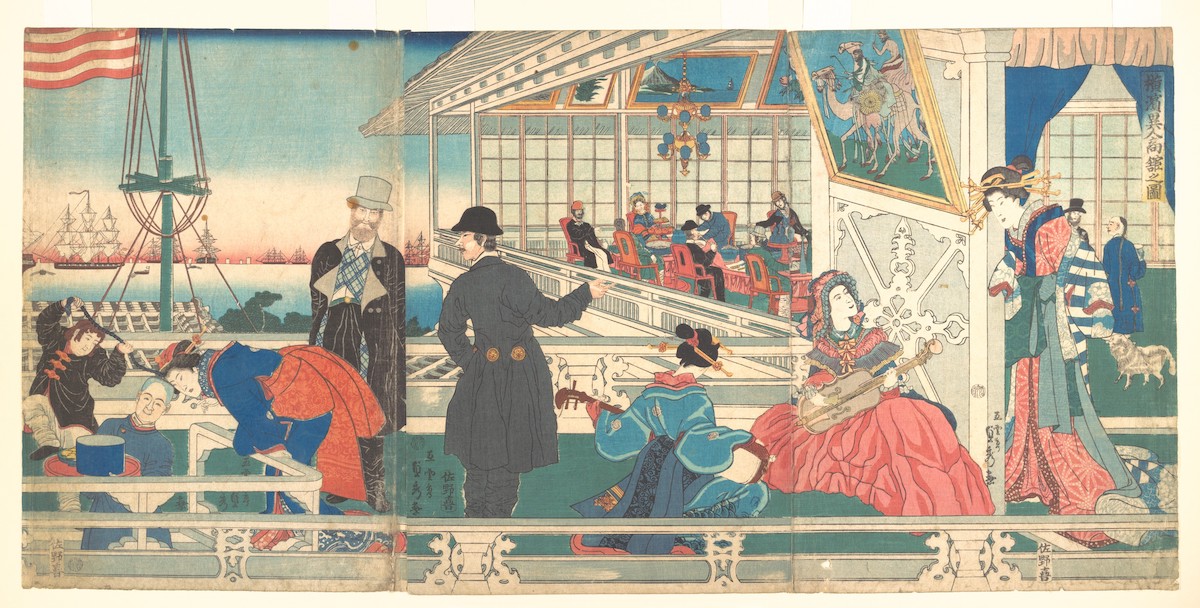
Utagawa Sadahide (1861) Home of Foreign Merchants in Yokohama
What is the history of immigration in Japan?
Japan has a long history of isolationism and limited immigration. Until the mid-19th century, Japan had a policy of sakoku, or “closed country,” which restricted foreign contact and prohibited Japanese citizens from leaving the country.
In the late 19th and early 20th centuries, Japan began to open up to the world and actively promote immigration to support its economic and industrial development. Japanese authorities encouraged immigration from nearby Asian countries, such as Korea and China, and later from Europe and the United States.
During World War II, Japan’s wartime government forced large groups of people from other Asian countries, particularly Korea and China, to work in Japan as forced laborers. After the war, many of these workers were repatriated, but some stayed in Japan and their descendants continue to live in Japan today.
Since the 1980s, Japan has experienced a surge in international migration, particularly from other Asian countries, as well as from South America, where many Japanese emigrants settled in the early 20th century. Today, the majority of immigrants to Japan come from China, Korea, and other Asian countries.
However, Japan’s immigration policy remains restrictive and there are a multitude of barriers to entry and naturalization for foreign residents. This has led to a complex set of issues related to multiculturalism, social integration, and discrimination.
Immigration from European countries to Japan has been relatively limited compared to immigration from other parts of the world, particularly Asia. However, there have been periods in Japanese history when immigration from Europe was encouraged or allowed. One of the earliest examples of European immigration to Japan was in the late 16th century, when Portuguese and Spanish traders and missionaries arrived in Japan. These Europeans introduced Western culture, religion, and technology to Japan and established trade relationships with the ruling samurai class.
In the late 19th and early 20th centuries, as Japan began to modernize and industrialize, the Japanese government actively encouraged immigration from European countries to bring in technical expertise and support economic development. Many European immigrants during this time were engineers, architects, and other professionals who worked in the rapidly growing industries of Japan.
During World War II, many European immigrants in Japan were interned or forced to leave the country as part of the war effort. After the war, some returned to Japan and contributed to its post-war reconstruction and economic growth.
Today, while the number of European immigrants to Japan remains relatively small compared to other parts of the world, there is still a small but growing community of European expats living and working in Japan. These expats often face challenges related to language barriers, cultural differences, and social integration in Japan.
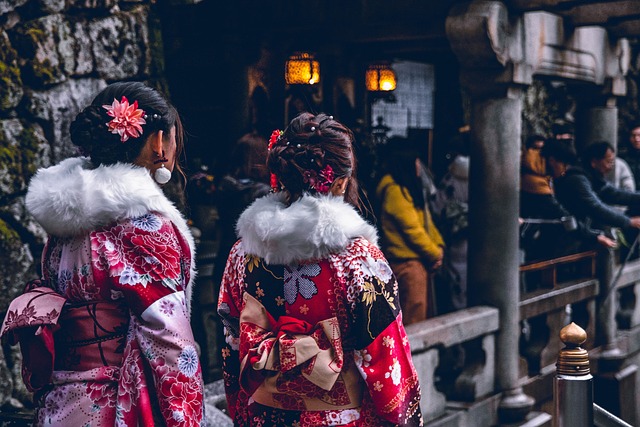
What is the role of race and ethnicity in Japan?
Typically, in America and other Western cultures, there is a distinction made between race, ethnicity, and nationality when discussing identity within a nation. For instance, I identify as white, with a Scotch-Irish ethnicity, and hold American nationality. However, I have often found it challenging to explain these distinctions when conversing with my classmates and friends in Japan.
In Japan, there is a tendency to conflate race with ethnicity, and less emphasis is placed on skin color or physical appearance. For example, Japanese people may use the term “hakujin” (meaning white person) to describe someone’s ethnicity or national origin, rather than their race. Nevertheless, there are racial issues present in Japan, particularly towards certain ethnic groups such as Koreans and other Asian immigrants. Ethnicity, on the other hand, is commonly viewed in Japan, with individuals often identified based on cultural and linguistic differences. Japanese people tend to refer to people from different ethnic backgrounds based on their country of origin, language, or culture.
This strong emphasis on ethnicity can result in challenges for foreign residents and immigrants living in Japan, who may possess different nationalities or cultural backgrounds. They often face difficulties related to social integration and discrimination. For instance, individuals may be labeled as “Chinese” or “Korean” based on their cultural background, even if their families have been residing in Japan for multiple generations.
However, it is important to comprehend the significance of ethnic background in Japan to understand Japanese perspectives on “foreigners” and “immigrants.” Based on my experience, an individual’s level of proximity to being “Japanese” (or how closely they resemble a typical Japanese person) can influence their experience of life in Japan. However, I’ll comment on this a bit more towards the end of this article.
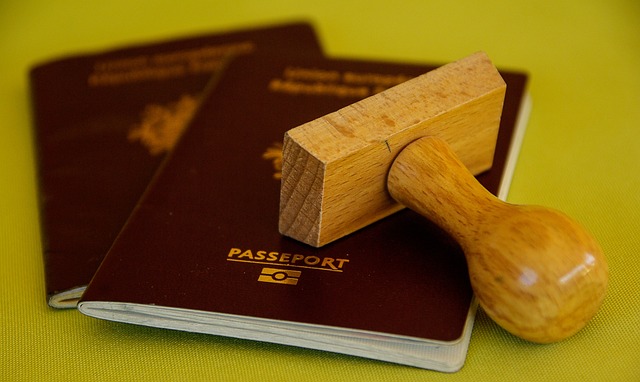
What is general sentiment around immigration in Japan?
A surprising discovery in an article by Jeremy Davison and Ito Peng, professors in social policy and sociology at University of Toronto (2020) found that the concept of immigration, as commonly understood in Western countries, seemed unfamiliar to several of the individuals we interviewed. The idea of migrating to a foreign country with the intention of becoming a permanent resident or obtaining citizenship appeared unfamiliar to Japanese participants.
In the study, when the participants were asked about their views on immigration, many assumed that the term ‘immigrant’ (移民/imin) was synonymous with ‘temporary foreign worker’ (外国人労働者/gaikokujin roudousha). Therefore, they believed that ‘immigration policy’ (移民政策/imin seisaku) included temporary worker programs as well. However, when it was made clear that ‘immigrants’ meant individuals who come to Japan with the intention of permanently settling in the country and potentially becoming Japanese citizens, and by ‘immigration policy’ we meant a policy facilitating the entry of such immigrants, many participants retracted their previous opinions and expressed concerns and reservations.
While a few participants cited material concerns such as immigrants taking jobs, depressing wages, or draining Japan’s welfare system, most cited identity-based concerns. Most commonly, participants argued that immigration is undesirable because it would lead to the irrevocable loss of Japanese culture, which they characterized as unique, admirable, and inherently valuable.
In other words, most participants were opposed to immigration because they believed it would lead to a loss of Japanese culture. They argued that Japanese culture is unique, admirable, and inherently valuable, and that it would be a shame to see it lost. Some participants also expressed concerns about the material impact of immigration, such as the loss of jobs and the strain on welfare systems. However, these concerns were secondary to the identity-based concerns expressed by most participants.
The findings of this study suggest that Japanese people are generally opposed to immigration, particularly when it is seen as leading to long-term residency or naturalization. This opposition is driven by a fear of the loss of Japanese culture, which is seen as unique, admirable, and inherently valuable.
The participants gave various answers when asked about Japanese culture. Some associated it with Japanese philosophical and religious traditions such as Bushido, Shintoism, or Buddhism. Others mentioned important aspects such as local festivals, Japanese art, literature, or culinary practices. However, the majority of participants equated Japanese culture with the concept of “Japanese values.”
If we go back to the understanding of the emphasis of ethnic identity as mentioned before, we can quickly see the framework of identity-based explanations may be part of anti-immigration sentiment.

In another study by Toshihiro Okubo at Keio University on Japanese public preferences of immigration, survey data was analyzed at the individual level to look at both economic and non-economic factor. The non-economic factors encompass behavioral bias, communication abilities, social stance, and subjective well-being. They found, interestingly enough, certain demographic characteristics, such as higher income males belonging to smaller families tend to be associated with a greater inclination to support immigration.
The study also finds that individuals with higher proficiency English language skills and experience living abroad are unsurprisingly more likely to have a positive perception of immigration. Perhaps a more interesting findings is that individuals who trust their local communities more than the government itself and engage in charitable contribution are also more inclined to view immigration positively.
So what does this all mean? Perhaps two things might be noted from these studies. For one the ability to communicate effectively with individuals from other countries and a strong affinity towards foreign cultures are significant factors that influence the perception of immigration. This is both noted in Okubo’s study (2021) as well as in other previous research (Yamamura, 2012), which indicates that regular interactions with foreigners have a positive impact, fostering open-mindedness and tolerance towards immigration.
So we can understand the fear of immigration negatively affecting Japanese culture and social cohesion coming from, in part, lack of communication between Japanese individuals and foreigners. Okubo found in his article that foreign workers in local communities does not significantly impact Japanese views on immigration. However, he also comments that it may in large part be due to the lack of immigrants in total leading to only 2.3% of the foreign population according to the Ministry of Internal Affairs and Communications. Because this community is quite small, there is little in the way of meaningful interaction between foreigners and Japanese individuals within Japan.
In addition to this, a large portion of foreigner presence in Japan tends to be international students, temporary workers, or quite simply tourists, thus Japanese individuals less likely to make long term meaningful friendships.

What is it like being a foreigner in Japan?
Addressing the question of foreigners’ experiences in Japan is complex, as it involves considering various factors. The purpose of immigration plays a significant role in shaping one’s experience, with notable differences between an academic studying and working on a campus and an immigrant engaged in full-time blue-collar work. Furthermore, the experiences of a white immigrant and an immigrant from an Asian country, like China or Korea, will differ significantly.
For instance, it is commonly assumed that individuals from Asian countries will possess sufficient Japanese language skills (or at least create ambiguity about their nationality), while the same assumption is rarely extended to non-Asian immigrants from regions such as Africa or Europe. Additionally, long-standing stereotypes and prejudices concerning Asian countries can contribute to varying levels of hostility or distant apathy from Japanese individuals, particularly given the influence of modern political tensions that exacerbate these prejudices.
However, one concern I have observed while living in Japan is the challenge of integrating into foreign communities. Admittedly, it’s a bit of a double-edged sword, as many individuals find themselves excluded from Japanese spaces due to factors such as language barriers, cultural differences, and, in some cases, outright prejudices. Consequently, it is common for foreigners to be confined to small communities of fellow immigrants, as establishing connections with Japanese social groups can be extremely difficult. This creates a feedback loop where immigrants and foreigners perceive Japanese people as, at best, distant and, at worst, impossible to connect with.
In my opinion, this problem stems from the strong sense of cultural identity held by most Japanese people. Delving deeper into understanding Japanese identity reveals the intricacies of social relationships, such as the dynamics between kouhai and senpai, as well as the ability to navigate formalities and gain insight into the cultural perspectives and history developed through a long period of cultural isolation and collective identity. Consequently, foreigners attempting to adapt may find it akin to solving a perplexing puzzle with no clear solution. From the Japanese perspective, foreigners also struggle to find a sense of belonging unless they have been exposed to foreign cultures and are familiar with international communication styles.
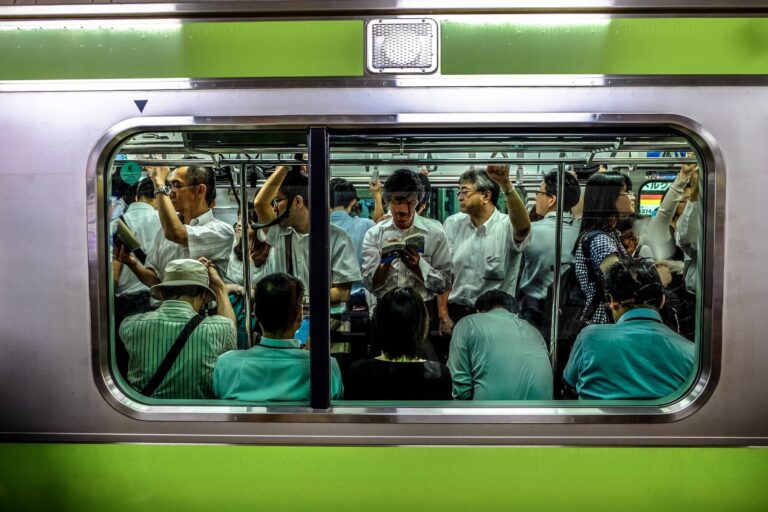
Returning to the fear of immigration negatively impacting Japanese culture and social cohesion, it may become a self-fulfilling prophecy. Without providing foreigners a place within the social structure of Japan, they never learn how to adapt to social norms and the culture of Japanese communities. As a result, foreigners experience both social exclusions, as they struggle to form friendships within Japanese communities, and literal exclusion, facing difficulties in securing job opportunities and housing options. This leads to frustration and resentment on both sides.
As I mentioned before, the individual’s proximity to being “Japanese” (or how closely they resemble a typical Japanese person) tends to influence their experience in Japan quite a bit. I think this is where it happens the most. Due to lack of foreign interactions and representation within Japanese culture, it becomes challenging for Japanese people to understand how to engage with foreigners who are unable to adapt to Japanese norms (unless they have been exposed to foreign cultures and are familiar with international communication styles).
Personally, I have found that my ability to adapt my mannerisms and expressions to align with Japanese cultural norms, such as bowing, adjusting my posture and tone of voice, has made me more approachable within Japanese communities. This contrasts with some friends who struggle to conform to these norms, and even in comparison to my own experience when I first arrived in Japan.
Although I will note, I do have the privilege of being a small white girl with a cheerful attitude, often carrying cute kitten images. Perhaps this privilege of not being perceived as intimidating has helped me as well with being able to conform to Japanese norms. It is important to acknowledge that there are more complex racial prejudices at play, which contribute to varying perceptions of foreigners and the diversity of foreign experiences.
Now, whether foreigners should or shouldn’t conform to the culture they live in is a separate debate. However, it is understandable that in Japan, where foreign communities are relatively small, it becomes more challenging for Japanese individuals to understand and accommodate the norms of foreigners, unlike in countries like America where diverse ethnicities and communities are more prevalent and impossible to ignore.

So… what’s the solution?
I’m not certain there’s a one-size-fits-all solution in this case. One perspective suggests that immigrants in Japan should conform to Japanese norms. If they choose to live in Japan, then they should choose to adapt to Japanese culture. On the other hand, some argue that Japan would benefit from embracing diversity and becoming a more accepting society. Issues like housing and banking discrimination are readily criticized and viewed as fundamentally concerning in modern American discourse.
I won’t directly state whether one side is right or wrong, but I will say that open communication could potentially improve the lives of both Japanese individuals and immigrants in Japan. Many of the difficulties and prejudices that are discussed, both in Japanese-exclusive spaces and foreign-exclusive spaces, seem to stem from significant communication gaps and misunderstandings about each other’s norms. I often find myself explaining the cultural peculiarities of one side to the other, but I can’t help but wonder if many of these issues would dissipate if both sides took the time to understand each other.
If Japanese people had more exposure to and a genuine understanding of what it truly means to be a foreigner in Japan (through media representation, allowing foreigners in prominent Japanese spaces, and educating people about how non-native Japanese speakers tend to use the language), then perhaps foreigners would be less intimidating and confusing to interact with. This will also mean by allowing more interactions with foreigners, foreigners will have more opportunity to actually interact with Japanese individuals making it easier to adapt to Japanese culture.
Likewise, if foreigners who wish to live in Japan long term make strong to understand and adapt to Japanese norms while in Japan, perhaps the unusual boundaries and cultural norms would make more sense and be easier to navigate for them. And I don’t mean learning basic phrases and simply enjoying tourist spots, but taking the time to understand how the language is structured and why Japanese people have the social system they have.
In most cases, neither side intends to be rude or cause harm to the other, but due to a fundamental misunderstanding between them, they become nervous, uncomfortable, and eventually resentful of one another.
Citations
Davison, Jeremy & Peng, Ito (2020). Views on immigration in Japan: identities, interests, and pragmatic divergence. Journal of Ethnic and Migration Studies, 47(11). https://doi.org/10.1080/1369183X.2020.1862645
Okubo, Toshihiro (2021) Public Preferences on Immigration in Japan. Japan and the World Economy, 58. https://doi.org/10.1016/j.japwor.2021.101073
Yamamura, Eiji (2012) “Perceived consequences of immigration in Japan depend upon frequency of contact with foreigners,” The Japanese Economy 39(2), 37–48. https://doi.org/10.2753/JES1097-203X390202






